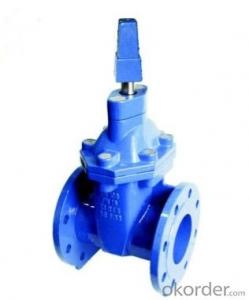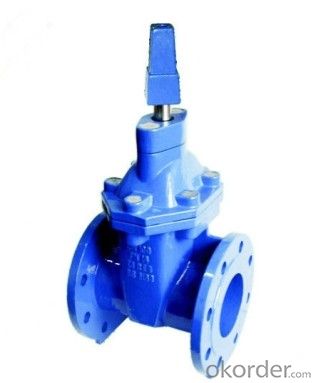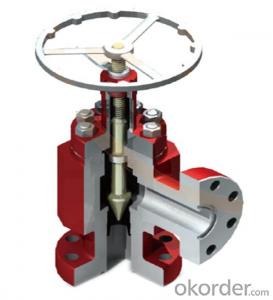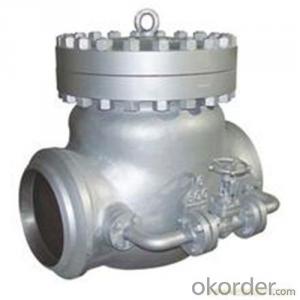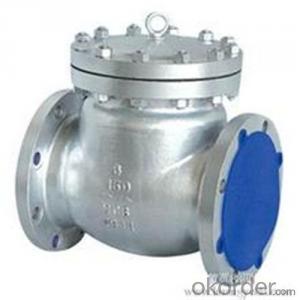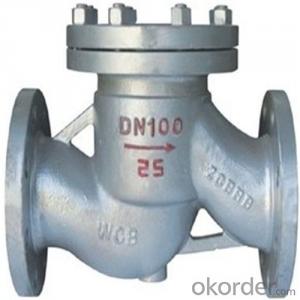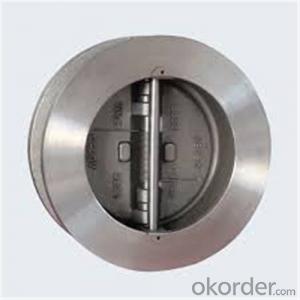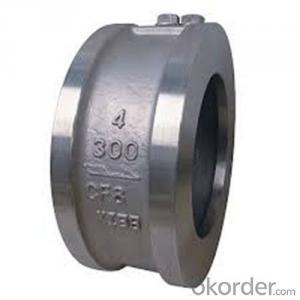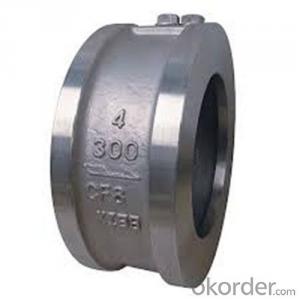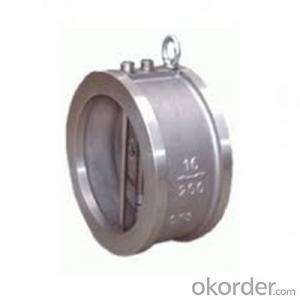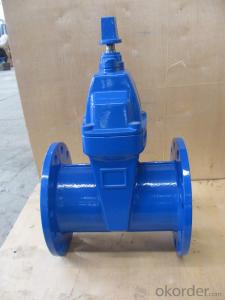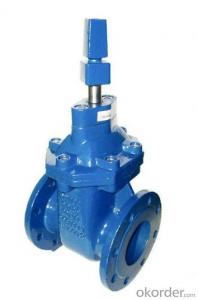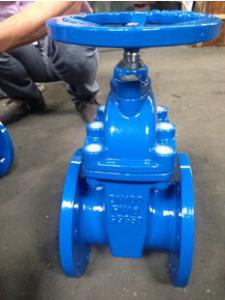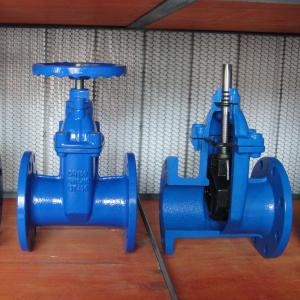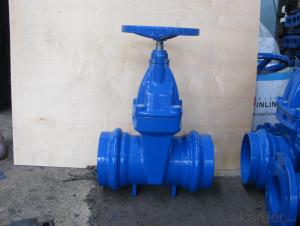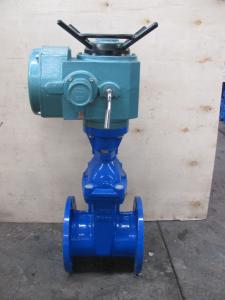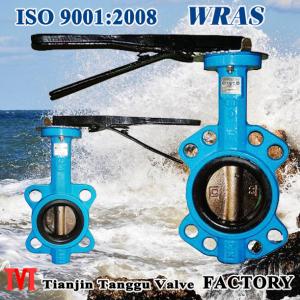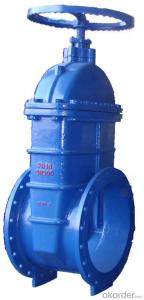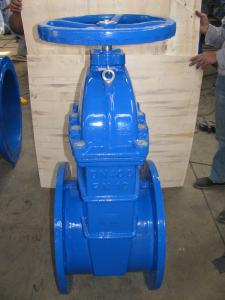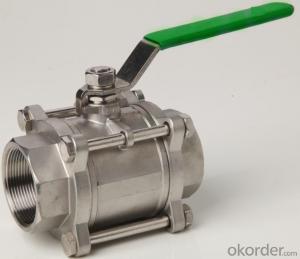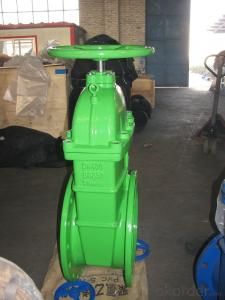Ductile Iron soft resilient DIN3352F4 Gate Valve
- Loading Port:
- China Main Port
- Payment Terms:
- TT OR LC
- Min Order Qty:
- -
- Supply Capability:
- -
OKorder Service Pledge
OKorder Financial Service
You Might Also Like
Specifications
Ductile Iron soft resilient DIN3352F4 Gate Valve
PN10/16/25
DN100 ~ DN2000
Technical Specifications
- Design and manufacture: EN593, EN1074-1 and 2
- Face to face dimension: EN558-1 Series 14 (DIN3202 F4)
EN558-1 Series 13 (BS5163)
- Flange dimensions and drillling: EN1092-2 PN10/16/25
- Size range: DN100 - DN2000
- Max. working pressure: 1.0/1.6/2.5 MPa
- Inspection test: EN12266
- Working temperature: -15°C to +80°C
- Suitable medium: water
Main Fetures
- Double eccentric disc reduces seal wear and torque
- Body seat ring is welded directly on the body
- Bi-directional flow and low head loss
- Disc sealing ring to be replaceable on pipeline without dismantling the valve
- Body and disc inside and outside epoxy powder coated (min. 250 microns)
- Opening and closing indicators are provided
- Coupling flange for electric actuator in compliance with ISO5211
- Gearbox and electric actuator operation available
Main Parts and Materials
Body and disc: ductile iron EN GJS500-7/400-15
Shafts: stainless steel AISI 420
Body seat ring: stainless steel AISI 304
Disc sealing ring: EPDM or NBR
Retaining ring: stainless steel or ductile iron
Shaft bearing: Du bushes (self lubricating bushes)
- Q: I was told Wed. that I need to have my aortic valve replaced. I was wondering if anyone could share their experience with this surgery good or bad. I am meeting with the surgeon on the 26th, and am very nervous. Any tips and or suggestions appreciated. I'm a 39 year old female.Thanks in advance
- This is a routine, well established procedure. The incidence of major complications are less than 4%. There are two kinds of artificial Heart Valves. One is mechanical, and the other is tissue valve. The mechanical valve requires the person to be on life long anti-coagulation therapy. This also requires periodic check on the persons pro thrombin time. Based on this, the anti-coaglation dose will be adjusted. The problem with anti-coagulation is that it may lead to bleeding complications. The tissue valve is made from the tissues of a bovine or porcine heart. The tissue is denatured to ensure that the valve is not rejected as a foreign tissue. (This is not a problem with mechanical valves.) Being made of tissue, these valves do not allow clots to form, which means that anti-coagulation after a short initial period is not required. This is a major advantage, especially for women, who may have some earlier bleeding problems. Then why are mechanical valves used at all? Being made from non-living denatured tissue, tissue valves cannot repair themselves. They also tend to get calcified in younger people with more calcium activity. They also have a shorter life than mechanical valves. Surgeons tend to favour mechanical valves for younger people (whose life expectancy is higher), and the tissue valve for the older, as such people may already have some bleeding problems, the valve's durability is not critical and the patient has lower calcium activity. These are general considerations. Only a surgeon armed with the full test results, and a knowledge of the patient history, who can advise the patient on what is the best option in each case. To reiterate, AVR (Aortic Valve Replacement, not my initials) is a routine procedure and recovery tends to be uneventful. Wish you all the best, and as uneventful a recovery as possible.
- Q: I have a 2005 Dodge Durango and had problems with stalling. I took it into the dealer with warranty on it. They said the ECG Valve is busted and its unsafe to drive. Can you guys tell me what the function of this part is?
- Here is a link dealing with the ECG (Engine Control Group). www.iau.dtu.dk/~eh/ecg_proj.html
- Q: I have a 1989 Jeep Cherokee with 218,700 miles on it and my engine has thick oily gunk on it, possibly from a leaky valve cover gasket, should I change the gasket? I have been told that this is normal and not to worry about, but from the amount of this gunk, I find it hard to believe this is normal. The top of the valve cover has a light covering of gunk, but on the sides and towards the bottom of the engine. it gets very thick and at some places you can't even make out whats suppose there. Does a leaky valve cover gasket mean that there is another problem going on?Can leaving the oily gunk on the engine cause any problems?Any info would be greatly appreciated.
- DIY method: pressure wash engine with a degreaser solution, remove valve cover, clean mating surfaces, apply a RTV silicone compound to the valve cover and install new gasket, reinstall valve cover, reinstall bolts taking care to not overtighten them, replace PCV valve (probably a good reasson why it leaks to begin with) clean jobsite and drink a beer. Non-DIY method: take to shop and pay about $150 for the trouble. Not a good idea to ignore an oil leak, it's just not.
- Q: I believe my EGR valve is bad. I am having symptoms of a bad one. If I unplugged it and took my car for a drive would the symptoms improve, if in fact it is a bad EGR valve?
- there are testing procedures that can be found in any car repair manual. the simplest are the vacuum operated ones. the electrically operated ones are a little more difficult to test, but can be done
- Q: The Hawker Tempest was the fastest piston powered airplane ever made, it had a sleeve valve engine. It was made obsolete, by the Me 262 and other jet engined fighters, But it's engine was the ultimate piston aircraft engine. Then piston engines became something for inexpensive planes, but why has the sleeve valve not undergone further development as a sports car engine?
- this has been tried and failed miserablly mainly due to cost they ran a steel sleeve in a aluminum block and due to the differences in cooling the engine was subject to failure within 30,000-40,000 miles
- Q: compare the structure of the tricuspid valve with that of the pulmonary valve??please help me
- Hello Inga, I'll help you this way. Form Follows Function. Remember that as you learn anatomy. It will guide you, make sense out of confusing things. In this instance, those two valves are not the same. They have very different requirements. Understanding the structural functioning of the heart will make this clear to you. Go back to the text, reread this section. Ask yourself. What are the differences between these compartments? Once you've an understanding of the cardiac cycle. You'll see ( hence remember it) for yourself.
- Q: My sump pump shut-off valve is very noisey. I wrapped insulation around it, but it still clunks. The clunk can keep me awake.
- If you mean the discharge check valve, it will clunk when the level switch trips the pump. The head or weight of the water trying to flow back into the crock causes the check valve to slam closed, making a clunking sound. This is pretty common and normal.
- Q: ok im 17 and had really bad chest pains for like 2 years and the dr told me last year my valve was leaking and the pains have been getting worse what should i do?
- Your doctor should have referred you to an heart specialist. Don't be asking kids here, ask the doctor!
- Q: how to get adjust the valves on a craftsman mower with a briggs and stratton with ohv 18hp? Iv'e heard you adjust them around 5 thousands with a feeler gauge. But im confused about what position to adjust them. Iv'e heard you wait till one of the valves is closed while the other is open and adjust that one. Then repeat till you got them adjusted. Whats the proper way?
- I have never worked on the lawn mower engine. I have adjusted valves on motorcycles which have overhead valves. There are markings on the ignition generator that designate which valve would be in the correct position. However, if you spin the crank which will move the valves up and down, you can adjust each valve when you can shake the valve tappet. This happens when the valve is closed and the cam comes away from the tappet. You should be able to feel play in the tappet when the valve is closed. Adjust this closed valve. Be careful not to make your clearance to tight. This is worse than loose. Looseness makes noise and excessive wear over time but tight will burn your valve seat and ruin the valve. I have to wonder if you really need to do anything to valves on a ten year old tractor. It's only a tractor, not anything high revving or high performance. My tractor has overhead valves and was new in the early 90's. Never did anything to it but change the oil. If you do plan on doing it, good luck.
- Q: Does the heater control valve anything to do with the A/C ?My heater control valve needs replacing, as it leaks when I put my truck's heat on. No heat, no leak. I have to periodically re-add Prestone every once in awhile after using the heat . I've checked the valve and it only leaks when I have my heat on, if I don't use my heat, I don't lose fluid. But now I'm wondering if I use my truck's A/C, does the heater control valve have anything to do with the radiator fluid, or just the freon? Thanks in advanceCar Mechanic in training
- The heater control valve has nothing to do with the A/C.
Send your message to us
Ductile Iron soft resilient DIN3352F4 Gate Valve
- Loading Port:
- China Main Port
- Payment Terms:
- TT OR LC
- Min Order Qty:
- -
- Supply Capability:
- -
OKorder Service Pledge
OKorder Financial Service
Similar products
Hot products
Hot Searches
Related keywords
